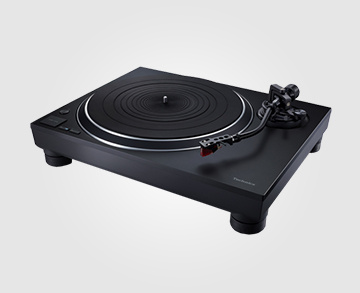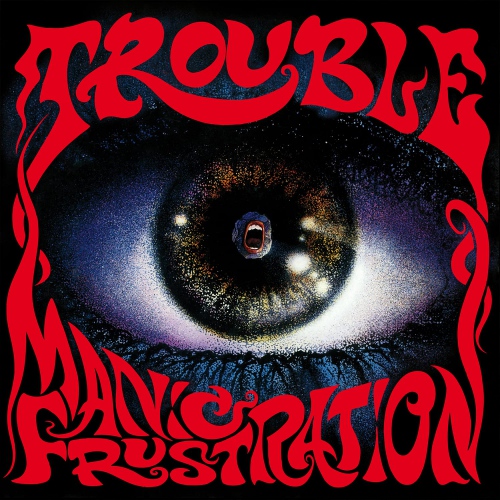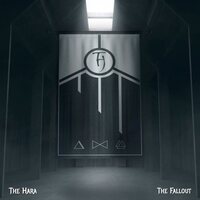At their peak, Trouble were the perfect combination of Black Sabbath meets The Beatles, and their 1992 album ‘Manic Frustration’ was their collaborative pinnacle. Perhaps a case of divine intervention from the feedback gods; the Doom pioneers jumped from their record label, Metal Blade to Rick Rubin’s American Recordings shortly after Slayer had. While Trouble never reached the commercial heights of the Thrash kings - they were, in their own way, just as important. ‘Manic Frustration’ immediately pulls you into a time warp of 70’s metal bliss, with its razor-sharp guitar tones and muscular, crisp production, courtesy of Rick Rubin (System Of A Down, Johnny Cash), himself. The way the players bounce off of each other is a rare example of lightning in a bottle, and Rubin is just there to document it all, in his typically stripped back fashion. The album kicks off with the scintillating restraint of ‘Come Touch The Sky’. It’s clear from the first few seconds of Rick Wartell and Bruce Franklin’s opening riffs that this is all about the song writing. The 1-2-3 punch of ‘’Scuse Me’ and ‘The Sleeper’ follow suit and kick the album into high gear. It’s only on the fourth track ‘Fear’ where Manic Frustration casts its true spell, expanding its sound and revealing its layered flourishes, as the band progressively steps up their game from each proceeding track. The production on Manic Frustration elevates the album to an unsung classic. Its songwriting laid out bare, sticking to its guns of old school Hendrix-like rock ‘n roll, with touches of psychedelia and Beatles-esque pop. Manic Frustration never chases any of the trends that were popular around ‘92, but instead remains more enamoured with the past. ‘Tragedy Man’ avoids all the trappings that make many similar songs today sound dated. The main centerpiece of the album, ‘Memories Garden’, is one of metal’s great melodic moments, along with the cocaine anthem ‘Mr. White’. If singer Eric Wagner’s banshee-like vocals take on more of a pop sensibility, then it’s really on the album’s closer ‘Breathe.’, where he cleanses his demons, with all things closing on both a grandiose and surprising note.
Release date:
February 4, 2022
Label:
Install our app to receive notifications when new upcoming releases are added.

Recommended equipment and accessories
-

Technics SL-1500C Turntable
Features a direct-drive motor, a high-precision tonearm, and a premium MM cartridge, delivering exceptional sound quality
-

Audioengine A2 Plus
Precision-engineered 2.75-inch woofers and a 0.75-inch silk dome tweeter, featuring built-in DAC and Bluetooth connectivity for seamless integration.
-

Turntables - Top Picks
A selection of reliable record players you can buy today, for every budget
-

Nobsound Little Bear T7 Tube Preamp
Delivers rich, warm audio through its high-quality vacuum tubes, featuring multiple inputs and adjustable gain
-

Denon DP-400
Featuring a high-precision, belt-driven mechanism and an adjustable tonearm that ensures optimal tracking and minimal resonance
Featured Upcoming Vinyl
-

Black Lung Forever Beyond
Magnetic Eye
March 6, 2026 -

Kisschasy Terrors Of Comfort
Unified Music Group
February 20, 2026 -

Joshua Burnside It's Not Going to Be Okay
Nettwerk Records
March 20, 2026 -

Megan Moroney Cloud 9: Megan's Signature Pink Vinyl [2xLP]
Sony Music Nashville
February 20, 2026 -

Morrissey MAke-Up Is A Lie Zoetrope
Warner Records
March 6, 2026 -

Tori Amos Strange Little Girls I'm Not in Love Version [2xLP]
Atlantic Catalog Group
February 20, 2026 -

Hara The Fallout
Mascot
February 20, 2026 -

Callum Beattie INDI (Coke Bottle)
Cooking Vinyl
February 13, 2026 -

Sananda Maitreya Juvenilia: The Columbia Years [6xLP]
Music On Vinyl
February 13, 2026 -

Weird Nightmare Hoopla
Sub Pop
May 1, 2026 -

Embrace Avalanche (Dark Blue Smoke)
Cooking Vinyl
June 12, 2026 -

Hunx and His Punx Walk Out On This World
Get Better Records
February 27, 2026 -

Maria BC Marathon (Green)
Sacred Bones
February 27, 2026 -

Mariachi El Bronx Mariachi El Bronx IV (Orange)
Ato Records
February 13, 2026


















